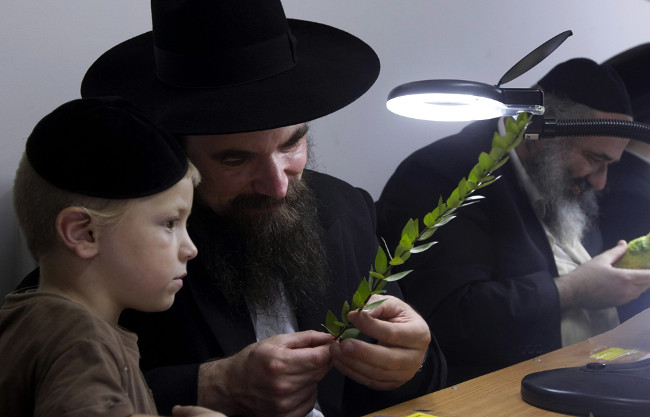Why do Jews always answer this question with another question?
Jews are considered to be the smartest people in the world. They have a very effective method to stimulate the brain which is a method of consideration . When you get any questions, the Jews will give an answer with one sentence from the other.
This question and answer method has been practiced and practiced by the Jews into a habit of passing from generation to generation.
This habit has even become their principle, never taking anything for granted, even the most strict and basic orders.

When receiving an order, no matter where the order comes from, the Jews always expect to find out why they have to carry out that order, and the logic behind each order is.
Even in academic studies, a school student does not have to blindly accept all the things the teacher says as holy words and nothing proves those words. They are always encouraged to ask questions, personal opinions to argue if they think that the teacher's actions go against what they have learned. This is not only good for students and even for teachers. Thanks to answering those questions, it helps the teacher to improve his knowledge.
For Jews every story has no beginning and no end. There is no so-called final answer and anyone can start a discussion at any point in it, even those that have been accepted by everyone.
In their thoughts and thoughts, learning is not like parrot things about the past but an invitation to discuss the future. When they encounter any problems, they consider, examine, research and ask questions to understand the depth of the problem. Since then they have the best decisions.
This method is an asset that contributes greatly to the intellect and the ability to draw accurate Jewish conclusions and control everything in life.
The Jewish community has circulated a story about the Q&A method as follows:
A rabbi asked a young man:
Two thieves broke into a house through a chimney. The face of a man is black and full of soot and the other one is still clean. Which name do you think will wash your face?
The young man replied, "Obviously, the dirty face will wash."
"Wrong! The" dirty face "thief will look at the" clean face "thief and think that his face is clean too, meanwhile the face-thief looks at his dirty face and thinks his face is dirty too. alternatively, the clean-faced thief goes to wash his face.
The clergy continued to riddle the same puzzle the last time. And the guy immediately wondered:
- Didn't the man face clean and washed?
"Wrong, both of you will wash your face. The clean-faced person looks at his dirty face and thinks his face is dirty. Therefore, the clean-faced person washes first. After that, the dirty-faced person sees that the face is clean. I went to wash my face, so the dirty face also went to wash it.
The clergy kept repeating the question like the third time, the boy frowned: "As a result, are two men all washing their faces?"
"I was wrong again! None of them will wash their faces. The dirty-faced man sees his face clean and thinks he's clean and doesn't wash. The clean-faced person sees that the person is dirty." he will not need to wash.
The rabbi asked the same question again as before.
The man screamed desperately: None of them would wash their face as he said above!
"You're wrong! Please explain to me: Why do two people come out of a chimney and have dirty people with clean people?
In general, any Jew is always in the habit of answering a question with another question.
You should read it
- ★ What will the Jewish people carry with the fire?
- ★ 30 surprising facts in the world surprise both 'smartest' people
- ★ 16 habits need to practice immediately to stimulate thinking and brain
- ★ Jewish philosophy of life: 'Giving away' is not simply a kind of happiness!
- ★ What is Mensa? Learn about the Mensa . organization